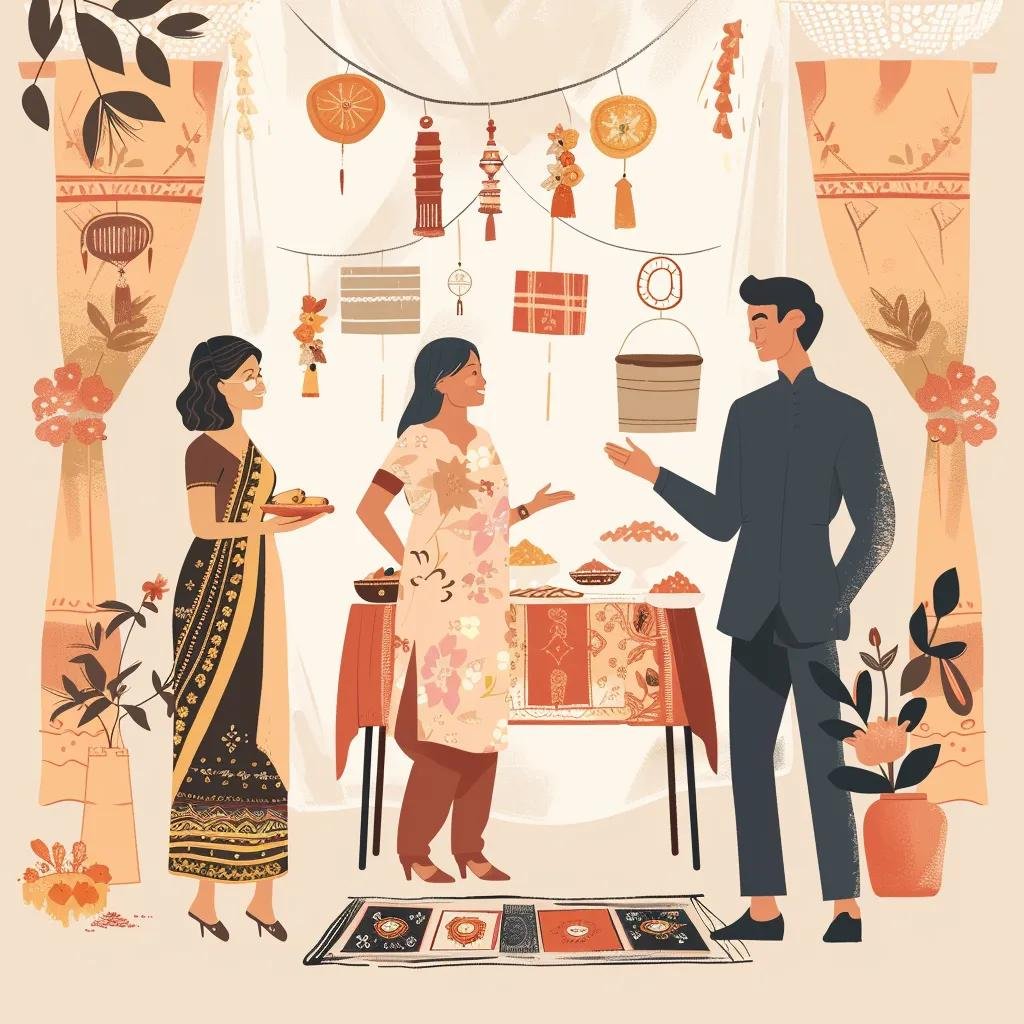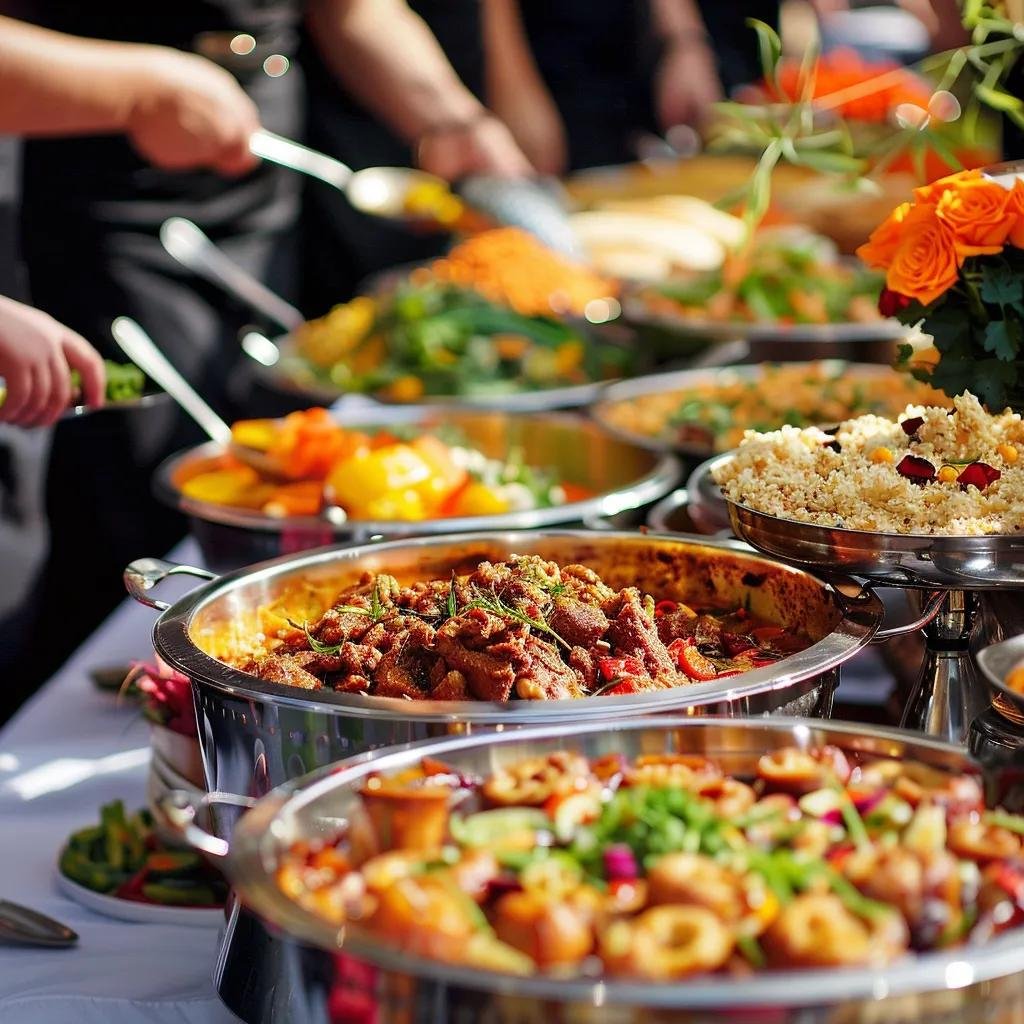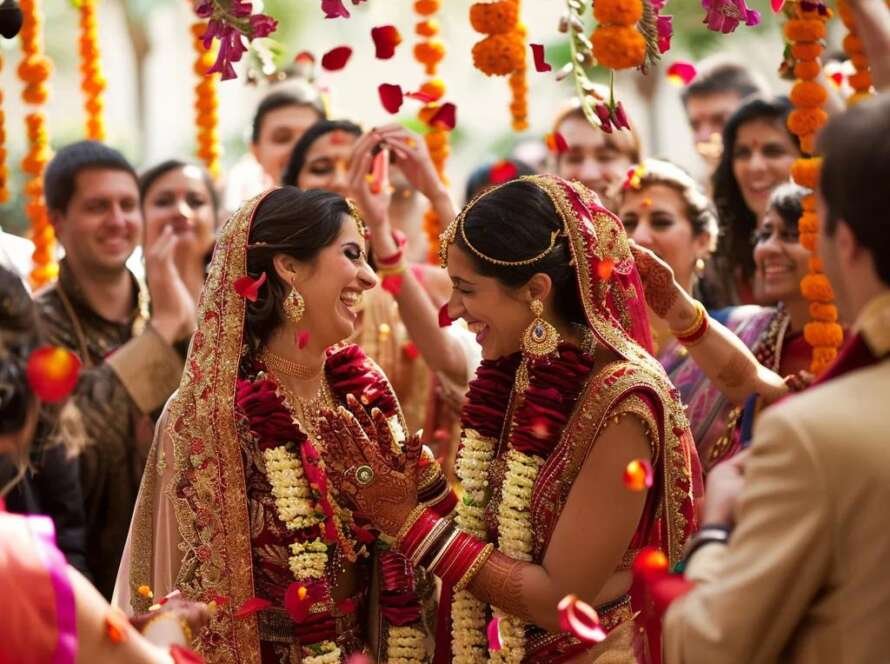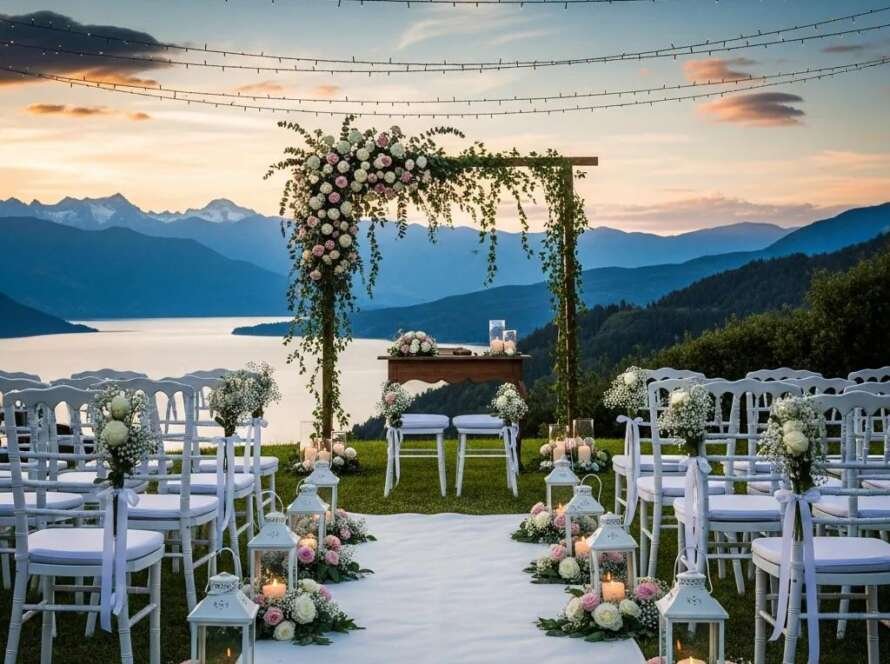
Article: # Why Cultural Wedding Planning Expertise Matters for Seamless and Meaningful Celebrations
Introduction
Creating a wedding that beautifully blends heritage with modern design requires a deep understanding of cultural wedding planning. This expertise ensures that every ceremony, décor, and ritual not only honors tradition but also flows effortlessly, turning potential confusion into unforgettable memories. Imagine coordinating a Hindu–Vietnamese fusion ceremony—understanding both Nakshatra matchmaking and Áo Dài attire is crucial. In this guide, we delve into the essence of cultural wedding planning, how it harmonizes diverse traditions, why expert knowledge is key to ceremony design and attire, how it elevates catering and entertainment, and how it alleviates stress for couples with the support of Let’s Groove Events.
Throughout this guide, we’ll weave the threads of expertise and integration, revealing the full spectrum of cultural wedding planning strategies.
What Is Cultural Wedding Planning and Why Is Expertise Essential?
Cultural wedding planning is about crafting ceremonies that honor specific traditions by weaving rituals, symbolism, and customs into every facet of the celebration. This expertise ensures authenticity, prevents misinterpretation, and streamlines vendor coordination—like sourcing a traditional mandap while respecting Hindu vastu guidelines. Couples benefit from precise ritual sequencing, thoughtful décor choices, and meaningful guest experiences.
The Importance of Cultural Wedding Planning
Cultural wedding planning is vital for creating celebrations that are both authentic and respectful, honoring diverse traditions. Expert planners ensure that every element aligns with heritage, preventing misinterpretations and ensuring a cohesive event. This expertise is crucial for blending different cultural elements into a unified celebration.
Smith, A., “The Role of Cultural Sensitivity in Event Planning,” Journal of Event Management (2022)
Here are three core reasons why expert cultural planning matters:
- Authenticity Preservation – Planners maintain cultural integrity by aligning ceremony elements with heritage.
- Conflict Prevention – Specialists mitigate family sensitivities through informed communication and ceremony structure.
- Seamless Logistics – Coordinated timelines and vendor briefings eliminate scheduling errors and interruptions.
Understanding these essentials leads us to explore how traditions shape detailed wedding plans.
How Do Cultural Traditions Influence Wedding Planning?
Cultural traditions shape wedding planning by dictating ceremony rituals, color palettes, symbolic décor, and event sequencing that reflect a couple’s heritage. Rituals like the Mehndi application and Baraat procession guide timing and décor themes, ensuring each moment aligns with ancestral customs. These elements create a timeline that transitions naturally into every segment of the celebration.
What Challenges Do Couples Face Without Cultural Expertise?
Without cultural expertise, couples often face misinterpreted rituals, vendor mismatches, and unintentional disrespect, which can disrupt the wedding flow and affect guest experience. Common issues include:
- Timeline Discrepancies – Incorrect scheduling of ceremonies leads to delays.
- Symbol Misuse – Color palettes or décor items are used inappropriately, offending cultural norms.
- Family Miscommunication – Lack of clarity on ritual significance can cause tension.
Addressing these gaps highlights the crucial role experts play in orchestrating respectful ceremonies.
How Does Cultural Expertise Ensure Authentic and Respectful Celebrations?
Cultural expertise ensures authenticity and respect by collaborating with cultural consultants, sourcing traditional elements, and educating vendors on symbolic practices, resulting in meaningful ceremonies. For example, enlisting a cultural liaison guarantees accurate execution of a Chuppah ceremony adorned with custom embroidery. This foundation informs how blending traditions can further enhance inclusivity and personalization.
How Does Cultural Expertise Help Blend Diverse Traditions in Weddings?

Blending diverse traditions in weddings requires thoughtful coordination to honor multiple heritages within a unified celebration. Expert planners facilitate open dialogue between families, integrate ceremonial elements like unity candles and exchange of garlands, and develop menus reflecting fused culinary preferences. These processes ensure ceremonies feel cohesive and personalized.
Effective strategies for harmonious fusion include:
- Collaborative Ritual Design – Co-create ceremony flows that incorporate key customs from all cultures.
- Symbolic Décor Integration – Combine color palettes and motifs that respect each tradition.
- Multi-Lingual Ceremonial Scripts – Provide officiants with bilingual scripts to include all guests.
- Tailored Culinary Pairings – Offer curated menus that balance signature dishes from both heritages.
Blending Traditions in Weddings
Blending diverse traditions in weddings requires careful coordination to honor multiple heritages within a unified celebration. Effective strategies include collaborative ritual design, symbolic décor integration, multi-lingual ceremonial scripts, and tailored culinary pairings. These approaches help create a cohesive and personalized experience for all guests.
Johnson, B., “Interfaith and Multicultural Wedding Planning: A Guide to Harmonious Celebrations,” Wedding Planning Quarterly (2023)
These strategic approaches set the stage for navigating complex family dynamics in interfaith weddings.
What Are Effective Strategies for Blending Two Cultures in a Wedding?
Effective blending starts with structured coordination meetings where families share non-negotiable customs, followed by a unified timeline that alternates rituals from each culture. Incorporating visual cues—like merging henna designs with ceremonial pew décor—creates unity while honoring distinct traditions.
How Can Planners Navigate Family Expectations in Interfaith Weddings?
Skilled planners navigate family expectations by facilitating respectful dialogues, honoring essential rituals from each faith, and arranging seating to reflect cultural sensitivities, fostering unity and mutual respect. This approach transitions smoothly into recognizing which wedding types need specialized expertise.
Which Cultural Wedding Types Require Specialized Planning?
Specialized planning is essential for weddings such as South Asian, African, Hispanic, and interfaith ceremonies due to their unique rituals, attire, and multi-day event structures. The following table highlights key distinctions:
| Wedding Type | Distinctive Element | Expert Focus |
|---|---|---|
| South Asian | Multi-day Sangeet & Mehndi | Timeline coordination & décor |
| African | Traditional libation rites | Cultural officiant sourcing |
| Hispanic | Catholic Mass + Lazo ritual | Religious protocol adherence |
| Interfaith | Dual ceremony sequences | Interfaith officiant liaison |
These distinctions illustrate the depth of cultural planning required and lead into why knowledge anchors ceremony design, décor, and attire.
Honoring Cultural Traditions: The Key to Meaningful Weddings
Cultural knowledge is crucial because it ensures each element—from ritual sequencing to color symbolism—aligns with heritage significance. Understanding the meaning behind a mandap or a unity candle unifies aesthetic decisions and ceremonial flow. These insights then inform the specific impact of rituals on execution.
Key areas shaped by cultural knowledge:
- Ceremony Structure – Customizes event order based on traditional practices.
- Symbolic Décor – Applies meaningful color palettes, motifs, and floral arrangements.
- Authentic Attire – Selects traditional garments with proper styling and significance.
These considerations lead naturally into how rituals direct planning and execution.
How Do Cultural Rituals Shape Ceremony Planning and Execution?
Cultural rituals shape planning and execution by defining key moments—for example, the Chuppah ceremony symbolizes home foundation, requiring specific assembly and blessing timing. This ritual-driven framework ensures each segment respects tradition and transitions fluidly.
What Role Does Cultural Decor Play in Honoring Heritage?
Cultural décor plays a vital role in honoring heritage by using symbols such as mandala patterns, color-coded linens, and sacred flowers that carry deep cultural meanings. These design choices create immersive environments that resonate with guests and honor ancestral customs.
How Does Expertise Guide Traditional and Fusion Wedding Attire Choices?
Expertise guides attire choices by sourcing authentic fabrics, advising on correct draping techniques for sarees and kimonos, and blending styles—like pairing a silk sari blouse with a Western gown silhouette—to reflect fusion aesthetics. This guidance ensures attire aligns with cultural protocols and the couple’s personal vision.
How Does Cultural Expertise Enhance Catering, Music, and Entertainment?

Cultural expertise enhances catering, music, and entertainment by providing authentic culinary experiences, selecting music with cultural significance, and curating performances that reflect traditions. Skilled planners coordinate with specialized caterers and musicians to craft immersive, memorable celebrations.
Core enhancements include:
- Authentic Menus – Feature traditional dishes prepared by vetted cultural caterers.
- Fusion Menus – Balance flavors from both families to delight diverse palates.
- Live Cultural Performances – Book traditional dancers and musicians for immersive experiences.
These enhancements demonstrate the depth of planning that elevates guest engagement.
What Are the Benefits of Authentic Cultural Catering and Fusion Menus?
Authentic catering and fusion menus benefit couples by honoring dietary customs, accommodating guest preferences, and showcasing signature dishes—such as an Indian thali alongside a West African jollof rice station—to celebrate culinary heritage.
How Is Traditional and Multicultural Music Selected for Weddings?
Traditional and multicultural music is selected by consulting cultural music directors, blending live instruments—like sitars and djembes—with bilingual DJs, ensuring each performance resonates with every guest’s background.
Why Is Cultural Sensitivity Important in Entertainment Planning?
Cultural sensitivity in entertainment planning is important because respectful representation of dances, music, and performances fosters inclusivity, prevents misinterpretation of customs, and creates genuinely celebratory atmospheres.
How Does Cultural Wedding Planning Expertise Reduce Stress and Ensure Success?
Cultural wedding planning expertise reduces stress and ensures success by providing structured processes, expert coordination, and proactive problem-solving that guide couples through complex, multi-layered celebrations. The result is a seamless, joyful experience for hosts and guests alike.
Expert planners use five key processes:
- Detailed Cultural Audits – Assess rituals, attire, and venue requirements early.
- Vendor Vetting – Select vendors with proven cultural competence.
- Timeline Integration – Align multi-day events with ceremony-specific rituals.
- Communication Protocols – Maintain clear family and vendor coordination.
- On-Site Cultural Liaison – Ensure respectful adherence to traditions on the wedding day.
These processes lead into managing multi-day events, such as Sangeet and Mehndi celebrations.
What Processes Do Expert Planners Use to Manage Complex Cultural Weddings?
Expert planners manage complex cultural weddings by creating centralized planning documents, coordinating rehearsals for ceremonial customs, and providing vendors with detailed briefs on ritual significance—strategies that avoid missteps.
How Do Cultural Experts Handle Multi-Day and Multi-Event Celebrations?
Cultural experts handle multi-day celebrations by establishing theme continuity, scheduling individual events—like Haldi and Mehndi—within cohesive design frameworks, and applying logistical safeguards such as buffer times and dedicated event teams.
What Are Real Client Experiences Demonstrating the Value of Cultural Expertise?
Couples report that professional cultural planning eliminated confusion, honored family legacies, and elevated their wedding story—testimonials and portfolios on Let’s Groove Events showcase these successes and invite you to envision your culturally tailored celebration.
A trusted cultural wedding planner transforms complex customs into seamless narratives that uplift every moment.
Partner with experts who honor your heritage and create celebrations as unique as your love story.



